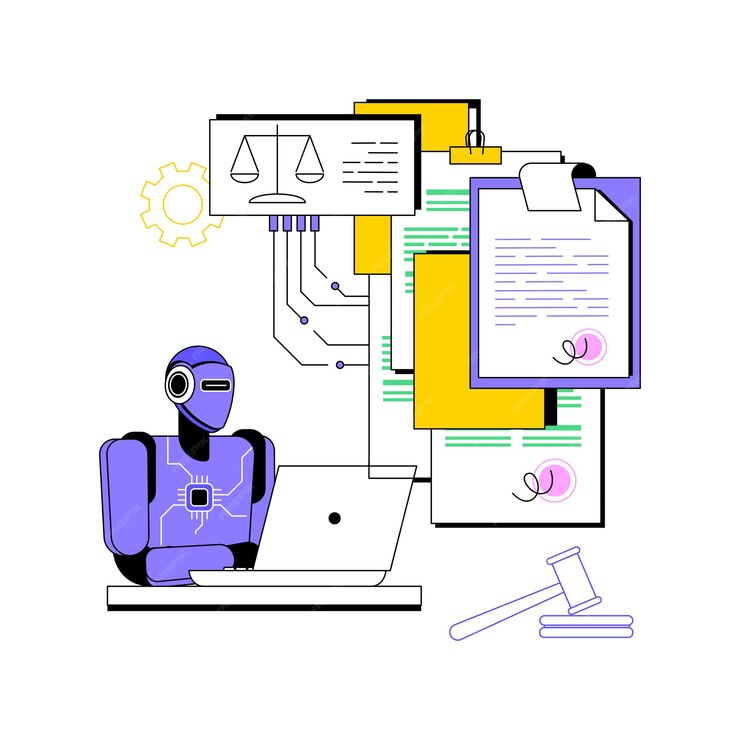Contracts are widely used in personal and professional settings for the exchange of services or products. Although they are useful for setting legal obligations, agreements mostly require third-party intervention, which complicates the process, increases vulnerability and even raises costs.
This led to the invention of contracts that are not only efficient but also self-executing, aptly termed “smart contracts.” They eliminate the need for any third-party intervention and deliver numerous other perks, redefining the creation and application of agreements.
To explain this better, this blog will cover the basics and importance of smart contracts for businesses in various industries.
Smart Contracts Explained
Smart contracts first came into existence in the 1990s, and they were presented by cryptographer Nick Szabo. He defined them as
“A set of promises, specified in digital form, including protocols within which the parties perform on these promises.”
So, these smart contracts automatically perform transactions upon fulfilling certain terms and conditions (T&C). These self-executing agreements are signed and stored on the blockchain network. Smart contract development is carried out by coding T&Cs using blockchain-specific programming languages such as Solidity, Rust, Ruby, and more. The transactions facilitated by these digital programs are usually trackable and irreversible, offering security and trust.
Smart contracts are categorized into the following types:
Decentralized autonomous organizations (DAOs)
DAOs are blockchain-governed democratic groups that operate through smart contracts. These automated contracts set rules and grant voting rights to DAO members. Thus, they technically regulate organizations’ functions, manage funds, and execute decisions without any human intervention.
Smart legal contract
As the name suggests, smart legal contracts are legally binding agreements, enforced using digital signatures without any third-party interference. These smart contracts are powered by blockchain’s key elements like immutability, transparency, and irreversibility. However, just like traditional agreements, failure to their obligation by involving parties can lead to legal consequences.
Application logic contracts (ALCs)
ALCs are a type of smart contract that is synced with other blockchain contracts using application-based code. They are different from the above classes, as instead of acting as an agreement between humans or organizations, these operate among machines and other contracts.
ALCs are helpful in blockchain integration or easing interactions between various devices, like the Internet of Things (IoT).
How Do Smart Contracts Function?
Smart contracts are built on blockchain platforms like Ethereum, Tezos, Ripple, and others, leveraging the functionalities of blockchain technology. On deployment, smart contracts autonomously carry the transactions, encountering trigger conditions. Smart contract services can be used to issue tokens, transfer funds, record transactions, and more.
Here’s how smart contracts technically work:
Agreement
Firstly, agreement terms and conditions are set based on the business operation and exchange of products or services.
Creation
Now, the set terms and conditions of the agreement are written in a smart contract using a programming language.
Deployment
Once the smart contract development is complete, the contract is compiled into bytecode and deployed to a blockchain.
Execution
After the contract is accessible to everyone, it automatically implements itself on completion of defined conditions.
Verification
Every transaction facilitated by the smart contract is recorded on the blockchain network.
Importance Of Smart Contracts For Businesses
Smart contracts are advantageous due to the following benefits they offer:
Savings
As smart contracts don’t require intermediaries for their efficient functioning, they help organizations carry out transactions by saving both time as well as money.
Security
Smart contracts are secure for many reasons, one being the absence of third-party intervention, which makes agreements less susceptible to attacks. Further, all the transactions are recorded on a distributed ledger, avoiding a single point of failure. Not only this but these transactions are encrypted as well, protecting the system from cyberattacks.
Efficiency and accuracy
As soon as the pre-defined conditions are satisfied, the contract executes itself in that very instant. Unlike traditional agreements, no paperwork or human intervention is involved, and the chances of error are next to zero.
Scalability
Smart contracts are quite scalable and useful for businesses of all sizes and verticals. They can efficiently carry out something as simple as a small transaction while also handling complex business operations.
Trust and transparency
The decentralized nature of smart contracts offers transparency by giving complete access to all the records on the blockchain. It fosters trust among stakeholders due to the easy verification of terms and execution of smart contracts.
Application of Smart Contracts For Businesses Across Different Industries
Property ownership
One of the biggest perks of smart contracts is simplifying the most intricate property ownership for the real estate industry: fractional ownership. Property owners can provide tokens to clients to own various property segments, allowing them to make micro-investments.
Civil law
Smart contracts are beneficial to the legal industry by securing, simplifying, and expediting agreements. Many countries are already implementing them in their legal operations. For instance, California uses smart contracts for managing marital and birth certificates.
Media and entertainment
Artists in the media and entertainment industry have various sources of revenue. One significant source is streaming services, where smart contracts facilitate quicker and easier royalty payments. These contracts outline all the details regarding the artists, record companies, and the royalties owed. Tune.fm is a tokenized music platform that allows artists to create NFTs for their content and receive loyalty payments for each stream.
Clinical trials
Smart contracts benefit the healthcare industry by enabling open and effective record-keeping through blockchain technology. These contracts assist healthcare professionals in sharing data easily during clinical trials while ensuring data integrity.
Decentralized finance (DeFi) applications
DeFi apps employ smart contracts along with cryptocurrencies, making financial services more streamlined and removing intermediaries. Businesses can use smart-contract-based DeFi apps for borrowing, lending, or related transactions.
Mortgages
The mortgage industry faces multiple bottlenecks, such as massive operational costs and multiple parties’ reliance that overcomplicate and slow down processes. Smart contracts simplify mortgage transactions by securely and accurately carrying out verification and approval without involving third parties.
Insurance
Smart contracts automate policies and services within the insurance industry. They help reduce insurer costs and increase payment processing speed compared to traditional manual processes.
Supply chain management
Businesses can build smart contracts for their entire supply chain. They would work autonomously without human intervention to manage all the data and make auditing much easier. Moreover, companies working in the supply chain can schedule their shipments upon completion of certain conditions, such as receiving payment confirmations.
Digital identity
Smart contracts can act as digital identification cards by storing users’ information and digital assets. Businesses can further use these cards to access and confirm user information and provide services. For example, lending firms can check the credit scores of loan applicants and other necessary details without requiring applicants to disclose their true identities, thereby reducing the risk of discrimination.
Wrapping Up
From healthcare to supply chain, smart contracts have entered every industry, helping businesses to benefit from their impressive capabilities. By actively incorporating smart contracts, companies can reduce paperwork, expedite operations, improve business management, and achieve a better return on investment (ROI). If you are thinking of building smart contracts for your business, Webcom Systems can help you. We have successfully delivered a diverse range of smart contract projects, leveraging our expertise in smart contract development services. Contact us to learn more about our services!
Recommended Read: Why Are Smart Contract Audits Necessary?





